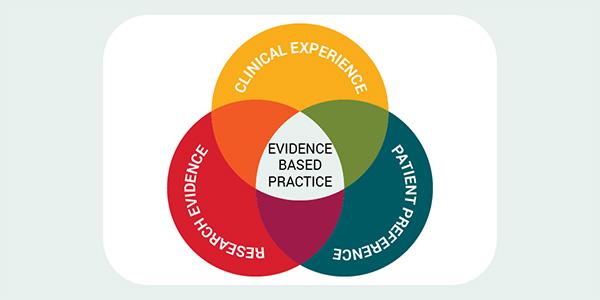From Supervision to Meta-Vision

Some coaches become more nervous and impatient when they are emotionally or energetically overworked. Some coaches cannot get over a difficult session and literally continue to carry their client on their shoulders long after the session is over. Others feel alone when faced with the demands of some demanding clients, have difficulty establishing a clear framework in the face of heavy demands, and are unable to establish a clear boundary between the client’s problem and their own. Still others feel directly involved in their client’s story and unconsciously position themselves as rescuers or allies. Others find it difficult to maintain a professional distance from their client, simply because they appreciate them on a human level and want to make a friend out of them. Others find themselves faced with ethical questions that make them feel cornered: how to maintain confidentiality in certain cases, or how to avoid a conflict-of-interest situation, to take just two common examples.
All these issues need to be “cleaned up” and addressed in a systematic way. Personally, I call my supervisor every six weeks during quiet periods and sometimes every two weeks when I have several difficult cases (individual or company) on my agenda.
What is Coach Supervision?
In a supervision session you offer yourself an alternative viewpoint, a meta-vision of a supervisor, on how you perform as a coach. Supervision looks at how we first introduced ourselves to our client – how we negotiated, at our true value or not, in our full power or not, with a clear message or not, etc. and the contracting – did we conclude considering all the parties involved, whether they were present or not? Did we detect psychological games linked to the relationship between them, for example? It may also look at the way we conduct each coaching session, individually or in a group, the tools we use or do not use, the way we manage the overall energy, the initiatives we have taken or not taken, the regrets that sometimes emerge when faced with the orientation we have given to the session, the side effect we may feel at the end of a session – have we gained or lost energy? Not to mention the psychological games that can emerge between stakeholders during the coaching process, and many other elements.
A clarification: this is not coach mentoring, which focuses exclusively on the development of the eight competencies of the coach, ICF and/or EMCC. Supervision, on the other hand, deals with the relationship that is established between the coach, his client and his environment-system, and the related mechanisms.
Each time I come out of a supervision session, I feel not only listened to and understood, but also reframed when necessary, cleansed of any negative feelings that may have developed and returned to my full strength. I feel ‘fresh’ and confident in my abilities as a coach. I can tell you; my investment of time, energy and money is generating a more than appreciable return.
Professional or not?
And then there is a whole new generation of coaches who have become supervisors very quickly, with just two to five years of practice. But I notice that many – and I say this without any judgment – have found themselves in a supervisory position as a result of a emerging market demand outside the US or Europe, or a desire to help their peers, but have little experience, training or maturity in their professional and personal lives. Maturity is not a question of age; some young supervisors are very mature, especially when life gave them the opportunity to experience resilience and a true understanding of people’s reaction to difficult life circumstances.

The profession of Coach Supervision
Supervision is a profession that calls for three types of knowledge: (1) the coaching process, including the pitfalls inherent in individual or corporate contracts, (2) the tools and multiple disciplines used in coaching and their context, (3) the psychological processes underlying any coaching relationship. While most coaches have been trained in the first two types of knowledge, very few are aware of the psychological processes and games that take place during a coaching session and which I have called the “coach’s challenges”. These include, for example, the inclusion of the coach in a systemic approach to the individual or corporate relationship, the emergence of parallel processes between the history of the client and that of the coach, and finer psychological processes – stratagems, transference, and countertransference, etc. – which are not always easy to understand and which insidiously take place during a coaching process.
These themes are not addressed in a traditional coaching training, or very little. However, this is one of the purposes of professional supervision training.
A good supervision training will include a systemic approach to the intervention framework, the analysis of business and psychological processes, and present different approaches to supervision. It will address the ontological levels of the coach from the physical (energy, health) to the mental (morale), emotional (not letting oneself be impacted by the client’s problem or personality) and spiritual (for whom, for what purpose, what higher dimension to bring to one’s action, what meaning to give to it, how to ‘be’ and not only ‘do’). Then, the supervision training can claim to be complete.
I am one of the four founders of the Academy of Coach Supervision & Mentoring offering the Global Supervision Training program, a truly integrative and thoroughly profound supervision training. The program is based on both EMCC and ICF standards. And IPC-Centre was selected as the Academy’s partner for the Russian-speaking coaches as acredible and well-appreciated partner to meet Russia’s need for professional coach supervision.
I have personally contributed to the training and supervision of hundreds of coaches around the world, and in Russia, and I am proud of that. Now, let us take it to the next level and ensure that coaches are well supported in their own development. As I always say, it is important that the dishwasher is also clean so that he can continue to clean the dishes! It might sound trivial, I know, but it sums up the need of every coach for proper supervision. After all, in supervision we are talking about a meta-vision on the coach’s daily coaching practice and this is essential to professional development!
Sylviane Cannio, MCC, MP, ESIA.





